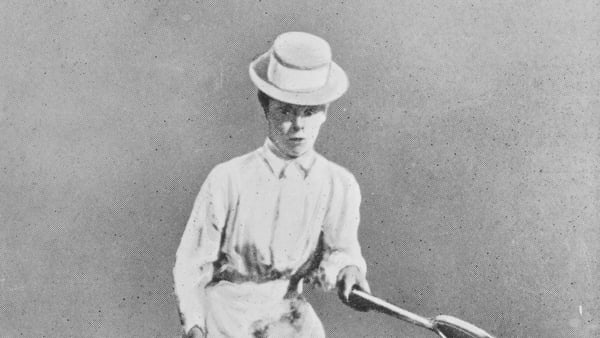Analysis: audience members chatting all the way through a live show is yet another example of bad gig behaviour
This article is now available above as a Brainstorm podcast. You can subscribe to the Brainstorm podcast through Apple Podcasts, Stitcher, Spotify or wherever you get your podcasts.
At a recent gig in Dublin, I ended up standing next to a group of people who seemed intent on treating the occasion like a chance to catch-up. Two of them even stood with their backs to the stage and chatted loudly through a good chunk of the set. I was baffled and more than a little distracted by it. That was the moment I realised I'd much rather be stuck next to a bunch of teenagers with their phones permanently filming in the air.
It got me thinking about why people bother buying a ticket to a gig only to talk all the way through it. Stories about badly behaved audiences have sparked debate about a lack of manners post-Covid, as a number of different acts have had things thrown at them by over-eager fans.
It’s been argued that kind of behaviour could be driven by the urge to go viral on social media, 'main character syndrome’ and strong parasocial relationships. During one of her Las Vegas residency weekends last year, Adele mused, "have you noticed how people are like, forgetting f****** show etiquette at the moment?"
We need your consent to load this rte-player contentWe use rte-player to manage extra content that can set cookies on your device and collect data about your activity. Please review their details and accept them to load the content.Manage Preferences
From RTÉ Radio 1's Today with Claire Byrne, flying cameraphones, rude fans and shouting: have we forgotten good gig etiquette? With Simon Maher from 8radio.com and music researcher Andrea Cleary
While bad gig behaviour is not all that new (Beatles fans were known to throw Jelly Babies at George Harrison because he said he liked them, for example), the choice to carry on nattering through an artist's performance feels different to throwing something at them.
So what might explain all the disruptive talking? "We kind of have an assumption that other people are in a place, doing a particular thing for the same reasons", says Dr John Francis Leader, psychologist, cognitive scientist and researcher with UCD’s Media and Entertainment Psychology Lab. "But they can be radically different. For some people the music is the point, for other people the social occasion is the point and the music is, at best, the background to that,"
Don't get me wrong, a bit of chat at a gig is to be expected, maybe even encouraged. Part of the enjoyment is the buzz and the atmosphere, sharing an experience with others and meeting new people. People standing on your toes and bumping into you is a reasonable part of it, too.
We need your consent to load this YouTube contentWe use YouTube to manage extra content that can set cookies on your device and collect data about your activity. Please review their details and accept them to load the content.Manage Preferences
From TIME, how admiring a celebrity might be healthy
It's what happens after that which defines what you feel when you come away from the experience. Fandom is powerful and something special does happen when you’re listening to live music in a crowd. It can be good for our wellbeing to nurture that social identity and it can even cause us to feel a greater sense of social cohesion and inclusion.
But there’s a kind of carry-on that ends up feeling like a rude antithesis to the all the goodness that comes from the community and togetherness of fandom. It’s the people who push to the front ahead of those who bothered to arrive early, those who talk without regard for the people around them.
Gig tickets have become so expensive lately that it's possible some people feel a sense of entitlement. There are, of course, plenty of different people at concerts. It’s plausible some may even have been dragged there against their will. In 2022, I was at a gig at Dublin's Olympia during an extremely tense World Cup penalties shootout between Argentina and the Netherlands, which both the person next to me and the person behind me were watching on a phone.
We need your consent to load this rte-player contentWe use rte-player to manage extra content that can set cookies on your device and collect data about your activity. Please review their details and accept them to load the content.Manage Preferences
From RTÉ Brainstorm, why are Irish gig tickets so expensive?
In her research on audience behaviour, anthropologist and author Wendy Fonarow identified three different zones at gigs with different patterns of behaviour. The least talkative and youngest audience members were found closest to the stage in Zone 1. The middle section, Zone 2, featured an older crowd with greater interpersonal distances, while Zone 3 featured industry professionals and those who weren't that interested in being there. Talking increased the further back you went in the room, she argued.
"There's a historical sociologist named Richard Sennett, who’s got a book called The Fall of Public Man, and he talks a little bit about the expectation of theatre crowds", says Dr A Jamie Saris, Associate Professor in the Department of Anthropology, Maynooth University. "In the 18th century and even well into the 19th century, there was no expectation that people didn't talk, indeed people would brawl.
"It’s a bit like how certain people treat the road when they’re driving, you know, not as a public thoroughfare but like, ‘my tax euros paid for this’. The expectation that you would show up and be quiet and respectful is relatively new, probably the last 150 years or perhaps even less."
We need your consent to load this rte-player contentWe use rte-player to manage extra content that can set cookies on your device and collect data about your activity. Please review their details and accept them to load the content.Manage Preferences
From RTÉ Radio 1's Morning Ireland, reporter Aisling Moloney attends a phone-free gig to see what it was all about
Saris points out that gigs vary hugely in many regards. During the last Leonard Cohen tour, a 'no dancing' rule was introduced which "failed spectacularly". Audience expectation therefore also has a role to play in behaviour, just think of 'Deadheads', the fans who followed Grateful Dead. "The music isn’t exactly the point. But that whole idea that the experience is a lot more than absorbing the music or whatever is on stage." And, he adds, some people are just rude.
Dr Jenny Groarke, a lecturer in the School of Psychology at University of Galway, explains that music has different functions for people. "What you might be seeing in these kind of live music contexts is people with contrasting or opposing functions. For some people the live event is really focused on listening to the music, really appreciating it from an artistic or creative level. That's kind of contrasting with some other people in that same event who may be having an equally legitimate experience, which is that for them, the music and the gig is a vehicle for social connection. Those are valuable and valid functions of music for different people. It’s just that unfortunately they can collide."
Music also acts as a social lubricant for some. "The music is having a positive effect on them, they feel more socially connected to others and they're having a bonding experience with other listeners at the gig. But their behaviour or their experience is probably taking away from those that are having an almost transcendental experience, who are having this direct connection with the music or with the artist itself. [For them] it’s not really a social act, it’s like a creative communion."
We need your consent to load this rte-player contentWe use rte-player to manage extra content that can set cookies on your device and collect data about your activity. Please review their details and accept them to load the content.Manage Preferences
From RTÉ Radio 1's Drivetime, Dr Claire Howlin from TCD on why gigs are good for you
But why do people not realise that they're impacting those around them? "You can describe cultures as being individualistic or collectivist," says Groarke. "We probably all individually vary in terms of how much we’re prioritising our own experience over others. There are probably some people that are prioritising the needs of the whole audience or the group and some people that are prioritising their own needs and desires.
"You’ll have people who are a huge fan of somebody but because of what they represent," says Leader. "They’re iconic, it's kind of a lifestyle thing, and they don't really care about their music that much. Certain musicians, certain artists, certain songs at different times have become iconic for different things. Maybe at times that translates into a respect for them, but I think it can kind of also go the other way, where it almost becomes less about the artist and more about what they stand for, more about the opportunity that that music represents."
"People are fans, but the question is of what. Is it the artist? Is it the music? Is it the other people in the room? Obviously then the reverse happens, if you think about a mosh pit, where you don’t really give a damn about what happens to people around you, but that’s because the head of the overall environment promotes that and that’s the vibe, and you’re in the wrong place if you’re not in agreement with that. So it’s kind of, what’s the core ethos for the people in the room?"
Follow RTÉ Brainstorm on WhatsApp and Instagram for more stories and updates
The views expressed here are those of the author and do not represent or reflect the views of RTÉ





